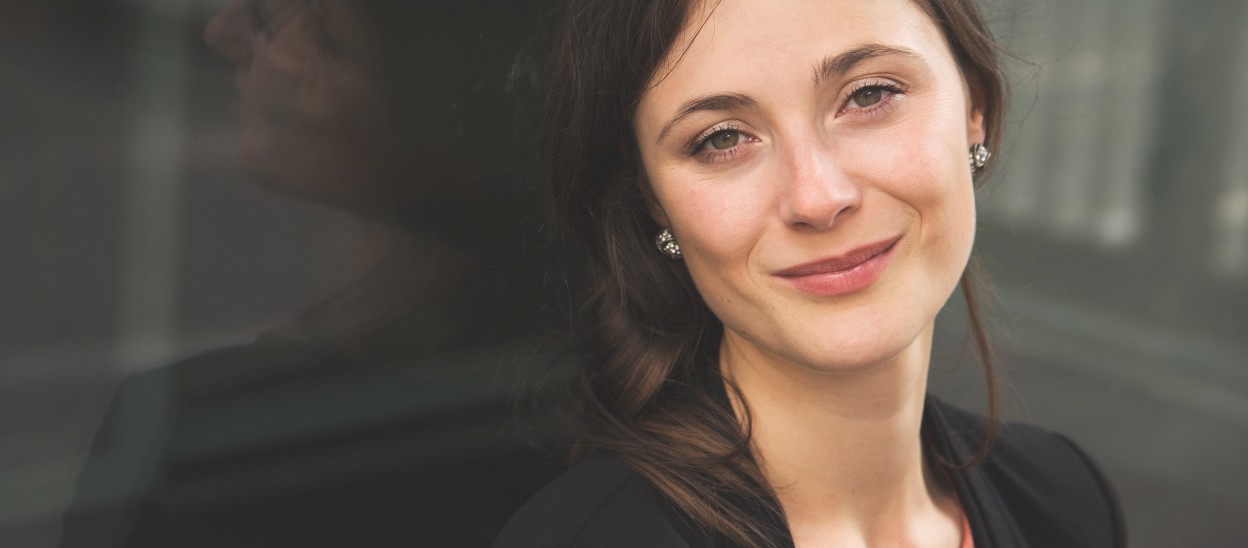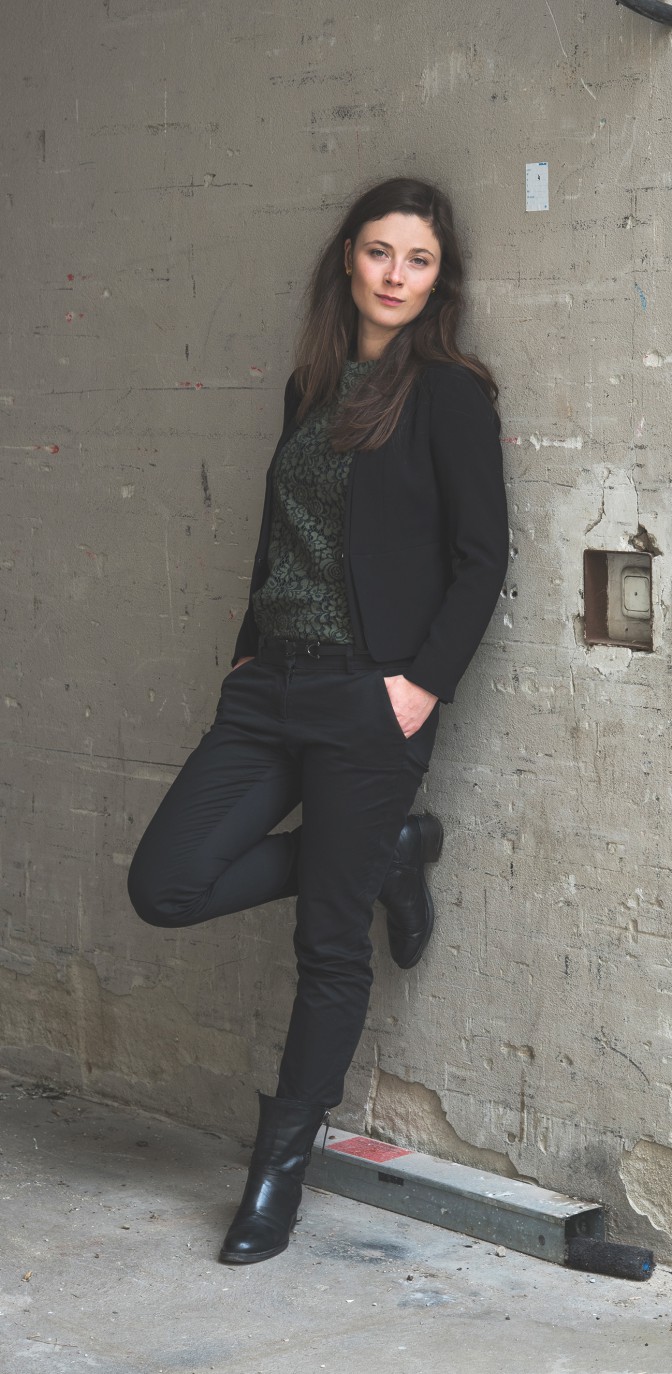BIOGRAPHY
The young soprano, Elena Harsányi, was born in Aachen into a family in which singing together was always an integral part of everyday life – not as a profession, but as a connecting social element. So it does not come as a surprise that her first experience with opera at a young age – of course, Mozart’s Magic Flute – suddenly awakened a love for classical music. Her desire to sing persisted into her adolescence and after singing lessons with Dr. Barbara Hebborn in Bonn, Elena received her first successes in the form of winnings at the competition Jugend Musiziert and intensive stage experiences in the opera projects of the Ludwig-van-B Foundation. Slowly, the idea of professionalizing singing beyond her passion for the art grew. This was followed by a Bachelor’s degree at the University of Music Saar with Prof. Ruth Ziesak in the areas of music theater and singing pedagogy, as well as a Master’s degree in concert singing at the University of Music and Dance Munich with Prof. Christiane Iven. The opportunity to learn from these two outstanding artists, who were internationally successful in opera, Lieder, and concerts, is still decisive for Elena’s vocal and artistic development today.
Inspired by their musicality and work ethic, she was able to enjoy her first successes in opera and song early on.
Her work in the field of opera will reach new heights in the summer of 2022 with her role debut as Galatée in Lully’s Acis et Galatée at the Maggio Musicale Fiorentina in Florence under the direction of Federico Maria Sardelli. She has been a member of the ensemble of the Oldenburg State Theatre since the 2019/20 season. There she can be seen regularly in a wide-ranging repertoire that includes roles such as Gretel in Humperdinck’s fairytale opera Hänsel und Gretel, Sophie in Strauss’ Rosenkavalier, Lauretta in Puccini’s Gianni Schicchi as well as Alphise in Les Boréades by Rameau, Servilia in Mozart’s Titus, and Pierrot Lunaire by Arnold Schoenberg. Already during her studies she could be heard in several productions at the Saarland State Theatre before she became a member of the ensemble there for the 2016/17 season. At the Saarland State Theatre, she was seen on stage in roles such as Maria in Bernstein’s West Side Story, Clarine in Platée by Jean Philippe Rameau, and Papagena. Elena made her debut as Pamina in 2019 at the Ettlingen Castle Festival.
Her range and love of experimentation is also reflected in Elena’s work in the concert field. She devotes herself to the baroque repertoire with great passion and can be heard with orchestras including the Ensemble Correspondance, the Kölner Akademie, the Jerusalem Baroque Orchestra and Orchestre de Picardie. In contrast to this are projects such as the world premieres of the contemporary work Variation über das Heidenröslein –one of Dieter Schnebel’s last compositions – in a version for chamber orchestra with the Jungen Deutschen Philharmonie under David Niemann and the version for orchestra with the Frankfurt Radio Symphony Orchestra under the direction of Duncan Ward. In addition, she regularly gains experience in classical concert formats, and has appeared with the Berlin Philharmonic Choir under the direction of Jörg-Peter Weigle in the Berlin Philharmonic as a soloist in Bach’s Christmas Oratorio or together with the Potsdam Chamber Academy in the Elbphilharmonie.
Her collaboration with the pianist Toni Ming Geiger, with whom she has formed a song duo since 2012, is also formative. They can be heard regularly throughout Germany and were awarded the Bechstein Special Prize by the Deutsche Musikwettbewerb 2018 and are supported by various grants and awards. Particularly worth mentioning is their inclusion in the renowned support program of the Académie Orsay-Royaumont 2019/20 which, in addition to various master classes, also made artistic research, a European tour, and CD production possible. The decisive factor for the collaboration between the two musicians is the desire to make the timelessness and relevance of the song genre tangible through strong thematic work and references, as well as through new and experimental concert formats.
Elena was a Cusanuswerks scholarship holder for many years. Her versatility and her efforts to present music in a lively way were recognized with a second prize in the 2018 competition of the Kulturkreis der Deutschen Wirtschaft „Ton und Erklärung“.
She hopes to expand her artistic ideal of an emotionally intuitive approach to music-making in the future.


